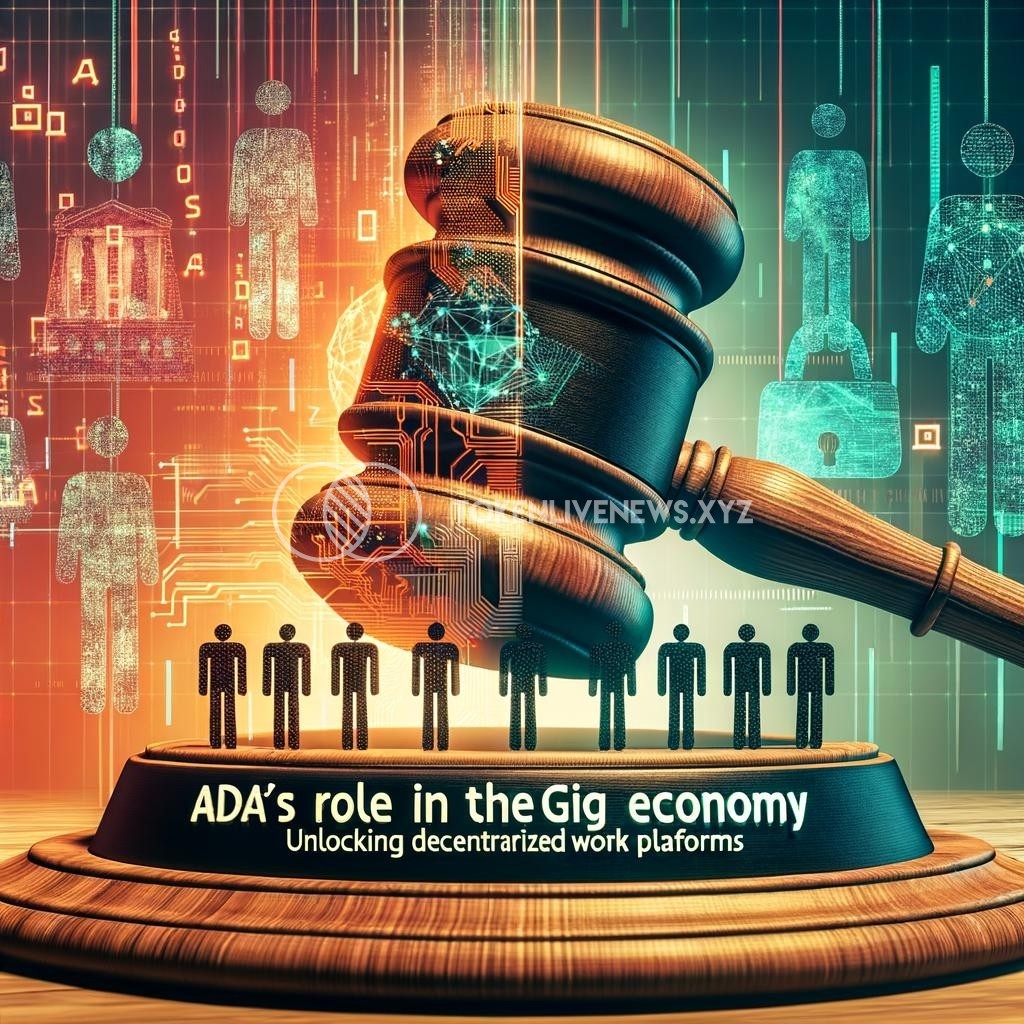ADA‘s Role in the Gig Economy: Unlocking Decentralized Work Platforms
The gig economy has transformed the way we work, allowing individuals to engage in short-term, flexible contracts rather than traditional, permanent employment. With the rise of digital platforms, workers can seamlessly connect with gig opportunities, earning income on their terms. However, the gig economy also faces challenges such as security, trust, and fair payment practices. To tackle these issues and enable decentralization, ADA, the blockchain-based cryptocurrency known for its advanced smart contract features, has emerged as a potential game-changer.
Decentralized work platforms, enabled by blockchain technology, provide numerous benefits over their traditional counterparts. By eliminating intermediaries, these platforms minimize fees and facilitate direct peer-to-peer interactions. This allows workers to retain a larger portion of their earnings while clients obtain services at competitive rates. Furthermore, decentralized platforms utilize smart contracts to automate agreements, ensuring transparent and efficient contract execution without the need for intermediaries to mediate or enforce.
ADA, as the native cryptocurrency of the Cardano blockchain, brings several unique advantages to the gig economy. First and foremost is security. The decentralized nature of blockchain technology makes it incredibly difficult for malicious actors to manipulate or corrupt data. As a result, payment transactions and worker reputation systems can operate freely from unfair manipulation or censorship. ADA’s cryptographic encryption provides an added layer of security, safeguarding personal and financial information, effectively eliminating fraud risks.
Trust is another vital element in the gig economy, and ADA addresses this concern through its smart contract capabilities. Smart contracts, programmable agreements stored on the blockchain, ensure that all parties involved adhere to the agreed-upon terms. These contracts automatically execute payments upon the completion of predefined conditions, ensuring that workers are fairly compensated for their services. Moreover, the transparency inherent to blockchain technology enhances trust by providing an immutable and auditable record of every transaction.
The gig economy often suffers from delayed or withheld payments, a persistent issue for freelance workers. By utilizing ADA as a payment method, these challenges can be overcome. The speed and efficiency of ADA transactions through the Cardano blockchain enable real-time payments, ensuring that workers receive their funds promptly upon completing their tasks. With the elimination of intermediaries, fees are drastically reduced, allowing both clients and workers to enjoy cost savings, making gig work more economically viable for all parties involved.
Another advantage of ADA in the gig economy is its potential for global scalability. Traditional gig platforms often struggle to provide services worldwide due to limitations imposed by borders, currencies, and payment infrastructures. However, with cryptocurrency payments, such as ADA, these obstacles can be circumvented. ADA’s decentralization and its ability to transcend geographical boundaries make it an ideal currency for gig workers who operate in a global marketplace.
In conclusion, ADA, with its technological prowess and advanced features, has the potential to revolutionize the gig economy. By enabling decentralized work platforms, ADA contributes to enhanced efficiency, transparency, and security. The implementation of smart contracts streamlines gig work, ensuring fair compensation and eliminating payment concerns. With real-time, cost-effective payments and the ability to transcend borders, ADA is a catalyst for the growth and prosperity of gig workers, fostering a more inclusive and globalized gig economy.







